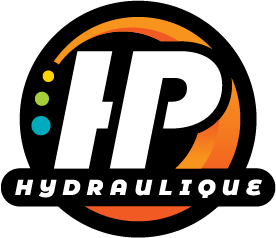FAQ
FREQUENTLY ASKED QUESTIONS (FAQ)
How can we help you? Here you will find answers to the most frequently asked questions from our customers about hydraulic, pneumatic and mobile electronics systems. If the information you are looking for is not available, please do not hesitate to contact us. A member of our team will be happy to answer you.
How to prevent damage to a contamined hydraulic system?
Several measuring devices can prevent damage to a hydraulic system:
- a filter maintenance indicator
- a water content measuring device
- a particle counter
How to avoid particle contamination of a hydraulic system when filling oil?
For manual filling, make sure the oil cap is clean and that you use a dry funnel (free of water or other fluids) and free of dust or particles.
The use of a filter pump to transfer oil from the gallon to the tank is a useful method of preventing contamination and ensuring the protection of the hydraulic system.
See our article on HYDRAULIC CIRCUIT CONTAMINATIONS to learn more
How to identific hydraulic contamination?
Tests are used to determine whether or not contaminants are present. This is most often done by analyzing the viscosity, water content, or solid content.
See our article on HYDRAULIC CIRCUIT CONTAMINATIONS to learn more.
How to clean a contaminated hydraulic system?
To clean a contaminated hydraulic system, there are equipments which allow a depollution of the fluid in a hydraulic circuit.
- Mobile filtration units can be connected to the circuit, allowing the fluid in the circuit to be depolluted
- The installation of fluid purifiers is a more complete system to clean up a fluid contaminated by particles, water or gases.
- In some major cases, a complete emptying followed by a cleaning is necessary.
What are the different types of hydraulic fittings?
There is a multitude of hydraulic fittings. They are differentiated according to several criteria:
- Male or female connections,
- Straight or angled fittings,
- Rigid or swivel fittings.
What are Bosch Rexroth products?
Bosch Rexroth designs and manufactures a wide variety of high quality hydraulic components, available for multiple technologies:
- Assembly, drive and electrical control technologies,
- Gear technologies,
- Linear motion technology,
- Industrial hydraulics,
- Mobile hydraulics,
- Welding techniques,
- Clamping systems.
What is the difference between an open and a closed hydraulic system?
An open system is one where the fluid flows from the pump through the valves and back to the tank. This means that the pump provides a continuous flow to the hydraulic system. In addition, an open circuit is a one-way circuit, which means that the fluid can only flow in one direction.
On the other hand, in a closed-loop hydraulic system, the fluid from the piston pump flows directly to a motor and back to the pump without passing through the reservoir. The special feature of this type of system is its bi-directional operation.
For more explanations, see our ARTICLE ON THE DIFFERENCES BETWEEN AN OPEN AND CLOSED HYDRAULIC SYSTEM.
